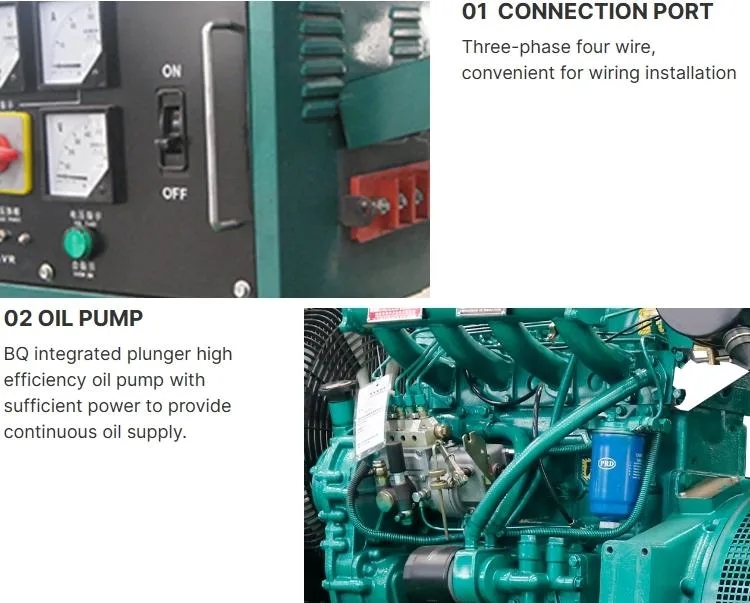Introduction:
Camping is a beloved outdoor activity that allows people to connect with nature, relax, and rejuvenate away from the hustle and bustle of everyday life. However, one of the challenges of camping is ensuring access to electricity for various needs such as lighting, cooking, charging devices, and operating electronic equipment. Portable diesel generators have become a popular solution for campers seeking a reliable power source in remote locations. In this comprehensive guide, we will explore the features, benefits, considerations, and best practices for using portable diesel generators for camping.
Chapter 1: Understanding Portable Diesel Generators
Portable diesel generators are compact and efficient power sources that operate by burning diesel fuel to generate electricity. They are designed to be easily transported and used in outdoor settings such as camping grounds, RV parks, construction sites, and outdoor events. Diesel generators are known for their durability, efficiency, and reliability, making them a popular choice for campers who require a stable power supply off the grid.
Key Features of Portable Diesel Generators:
- Compact size and lightweight design for easy transportation
- Quiet operation to minimize noise pollution in natural settings
- Fuel-efficient engines that provide long-lasting power
- Easy start-up mechanisms for quick and hassle-free operation
- Multiple outlets and ports for connecting various devices and appliances
- Built-in safety features to protect against overloads and voltage fluctuations
- Option for parallel operation to increase power output when needed
- Low maintenance requirements for long-term durability
Chapter 2: Benefits of Using Portable Diesel Generators for Camping
There are several advantages to using portable diesel generators for camping, including:
1. 200kw diesel generator : Diesel generators are known for their consistent and reliable power output, ensuring that you have access to electricity whenever needed during your camping trip.
2. Fuel Efficiency: Diesel engines are more fuel-efficient than gasoline engines, allowing you to run your generator for longer periods without frequent refueling.
3. Durability: Portable diesel generators are built to withstand rugged outdoor conditions, making them a durable and long-lasting power solution for camping adventures.
4. Quiet Operation: Many modern diesel generators are designed to operate quietly, minimizing noise disturbance in nature reserves and camping grounds.
5. Versatility: Portable diesel generators can power a wide range of devices and appliances, making them versatile tools for camping trips of all sizes.
6. Easy Maintenance: Diesel generators are relatively low-maintenance compared to other power sources, requiring minimal upkeep to ensure optimal performance.
Chapter 3: Considerations for Choosing a Portable Diesel Generator for Camping
When selecting a portable diesel generator for camping, there are several factors to consider to ensure that you choose the right model for your needs:
1. Power Output: Determine the wattage requirements of your camping gear and appliances to select a generator with sufficient power output to meet your needs.
2. Portability: Consider the size, weight, and transportation options of the generator to ensure that it is easy to carry and store during your camping trip.
3. Fuel Efficiency: Look for a diesel generator with high fuel efficiency ratings to minimize refueling needs and maximize runtime on a single tank.
4. Noise Level: Choose a generator with quiet operation features to reduce noise pollution in outdoor settings and maintain a peaceful camping environment.

5. Runtime: Evaluate the runtime capabilities of the generator on a full tank of fuel to ensure that it can power your camping activities for the desired duration.
6. Safety Features: Check for built-in safety features such as overload protection, voltage regulation, and automatic shutoff to protect your devices and appliances.
7. Budget: Consider your budget constraints and compare the cost of different portable diesel generators to find a model that offers the best value for your money.
Chapter 4: Best Practices for Using Portable Diesel Generators While Camping
To maximize the performance and longevity of your portable diesel generator during camping trips, follow these best practices:
1. Read the User Manual: Familiarize yourself with the operation, maintenance, and safety instructions provided in the user manual of your generator.
2. Proper Ventilation: Place the generator in a well-ventilated area to prevent carbon monoxide buildup and ensure safe operation.
3. Regular Maintenance: Perform routine maintenance tasks such as oil changes, filter replacements, and inspections to keep your generator running smoothly.
4. Fuel Management: Use clean and high-quality diesel fuel to prevent engine clogs and ensure optimal performance of your generator.
5. Load Management: Avoid overloading your generator by distributing power usage evenly among connected devices and appliances.
6. Storage: Store your portable diesel generator in a dry and secure location when not in use to protect it from environmental damage and theft.
7. Emergency Preparedness: Have a backup power plan in place in case of generator failure or fuel shortage during your camping trip.
Conclusion:
Portable diesel generators are essential tools for campers seeking a reliable power source in remote locations. By understanding the features, benefits, considerations, and best practices outlined in this guide, you can select, operate, and maintain a portable diesel generator for your camping adventures with confidence. Whether you enjoy camping in the wilderness, at RV parks, or in national parks, a portable diesel generator can enhance your outdoor experience by providing a dependable source of electricity for all your camping needs.
